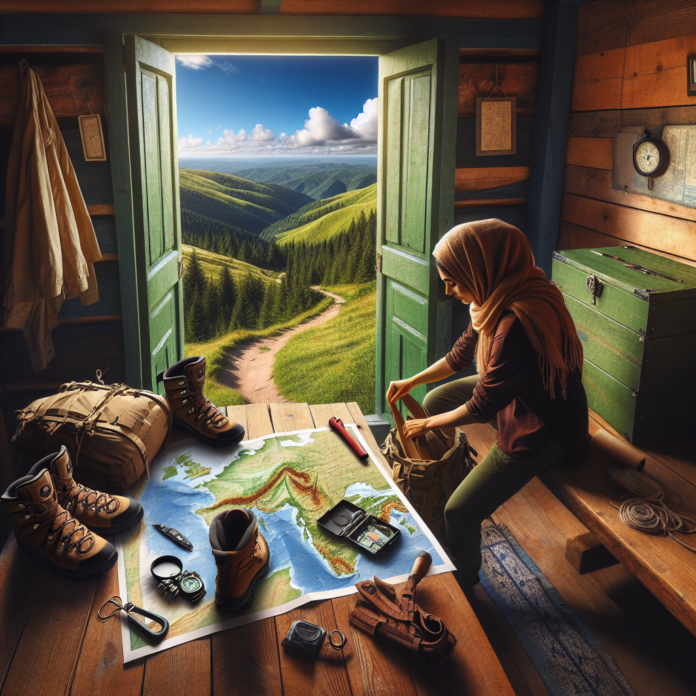People often overlook the call of nature and the adventure she offers. Whether you are in a bustling market in a busy town or going about your daily routine, that small part of you yearning for adventure is often suppressed. What if you listened to that call and embraced the explorer within you? Here is why outdoor adventuring is beneficial and how you can unleash your inner explorer.
Why Outdoor Adventures?
Embracing the outdoors promotes mental and physical health. Studies show that physical activities in green spaces attenuate mental stress, depression, and anxiety. Even the mere sight of green spaces gives the mind and body ample relaxation. Besides, the physical activities involved help tone muscles, enhance cardiorespiratory fitness, enable better sleep, and improve body mood. These benefits make outdoor adventuring a worthwhile endeavor.
Start Small, Grow Big
You don’t have to tackle the highest peak or the wildest river for a start. Begin with small outdoor activities, like a nature walk in your local park. Attend outdoor events and make friends with people who share the same interest. With time, you will nurturally develop an inclination towards bigger adventures. Remember, Everest was not conquered in a day.
Attitude and Open Mind
To enjoy outdoor adventures, you need to keep an open mind and possess a positive attitude. Mother nature is wild and unpredictable. Embrace her by adapting to her conditions. A sudden change in weather, a stubborn campfire, or an incessant mosquito are all part and parcel of the outdoor adventure experience. Maintain an adventurous spirit and keep exploring!
Equip Yourself Right
A good adventurer is always ready. Invest in good gear, ranging from appropriate clothing to equipment according to your kind of adventure. Having the right gear ensures not only your safety but also enhances your adventure. Though remember, your most valuable equipment is your knowledge and skills. So, always strive to learn new outdoor survival skills. They’ll come in handy when you least expect it.
Respect Nature
Respect for nature should be a fundamental principle for all adventurers. Practice the ‘leave no trace’ policy, which stresses avoiding negative impacts on nature. It includes properly disposing of waste, minimising the impact on flora and fauna, and being considerate of other visitors. Nature is our home, always endeavour to keep it clean and undisturbed.
Conclusion
Outdoor adventures have immense benefits, both physical and psychological. They rejuvenate the soul, allowing you to connect with your roots. So, take that first step by embracing the small outdoor experiences at your disposal. Keep a positive attitude and an open mind, and let the wild draw you in. Invest in good gear, and continually improve your knowledge and outdoor survival skills as they are paramount in your exploration journey. Above all, respect nature and endeavor to minimize your impact on it. And remember, the outdoor adventure is all about enjoying and appreciating nature, not conquering it.
FAQs
What can I do for a first outdoor adventure?
Start simple. Walks in a local nature reserve or park are a good starting point. As you get more accustomed to being outdoors, you can progress to more challenging adventures like hiking, camping, or canoeing.
What should I wear for an outdoor adventure?
Depending on your adventure, you should always wear weather and activity-appropriate clothing. The general idea is to dress in layers so you can adjust to the temperature changes. Also, invest in good footwear; your comfort depends on it.
How can I mitigate my impact on nature?
Practice the ‘leave no trace’ principles. It will help preserve nature for future generations. This includes disposing of waste properly, minimizing damage to flora and fauna, and being considerate of other visitors.
What are some survival skills I should learn?
Some essential skills include building a fire, setting up a tent, giving first aid, understanding a compass, and map reading. Learn how to recognize dangerous plants and animals. Also, always inform someone about your trip before you leave.
What equipment do I need for an adventure?
Your equipment depends on your adventure type. But some basics include a sturdy backpack, water bottle, first aid kit, map, compass, flashlight, multipurpose tool, and appropriate clothing and footwear.

